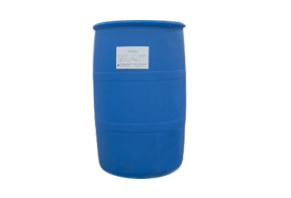As a new type of surfactant produced by microorganisms, biosurfactants have many advantages over chemical surfactants, such as low toxicity, degradability, ecological compatibility, high efficiency and stability. Therefore, biosurfactants are widely used not only in the fields of oil exploitation and transportation, pharmaceutical industry, food industry, textile industry and cosmetics industry, Moreover, more and more attention has been paid to its application in the field of environmental engineering, especially in soil remediation.

Adding biosurfactants in the aerobic composting process of solid organic waste can improve the microenvironment of composting treatment, promote the degradation of organic matter and speed up the composting process. However, only a few products of biosurfactants have entered the market, and most varieties are in the experimental research stage, mainly due to its high production cost. It is estimated that the cost of biosurfactants is 3 ~ 10 times that of chemical surfactants.
At the same time, some bacterial agents producing biosurfactants, such as Pseudomonas aeruginosa, are banned from agricultural composting and microbial fertilizer. Therefore, the application of biosurfactants in agricultural composting is greatly limited. According to literature reports, the addition of chemical surfactant Tween-80 can increase cellulase activity and promote the biodegradation of cellulose substances. There are few reports on the application of chemical surfactants in aerobic composting to accelerate the composting process.
With the rapid development of livestock and poultry industry, the scale of livestock and poultry breeding is becoming larger and larger. A large number of untreated livestock and poultry feces are directly discharged into the environment, which not only pollutes the environment, but also seriously threatens human health. On the other hand, livestock manure is rich in organic matter and nitrogen, phosphorus, potassium and medium and trace elements required by crops. It is a good raw material for resource reuse. Therefore, it is very important to turn waste into treasure and make harmless treatment and resource utilization of livestock and poultry manure. From the perspective of high-temperature and safe operation of livestock and poultry manure, it is a suitable and reliable composting process in China.
Aerobic composting is a biochemical process in which organic matter is degraded and transformed into humus with the participation of microorganisms. The enzymes released by microorganisms play a key role in the biochemical process of composting. Microbial enzyme activity determines the degree of decomposition and metabolism of organic matter. Studying the change of enzyme activity in composting can further infer the process and mechanism of organic matter decomposition.